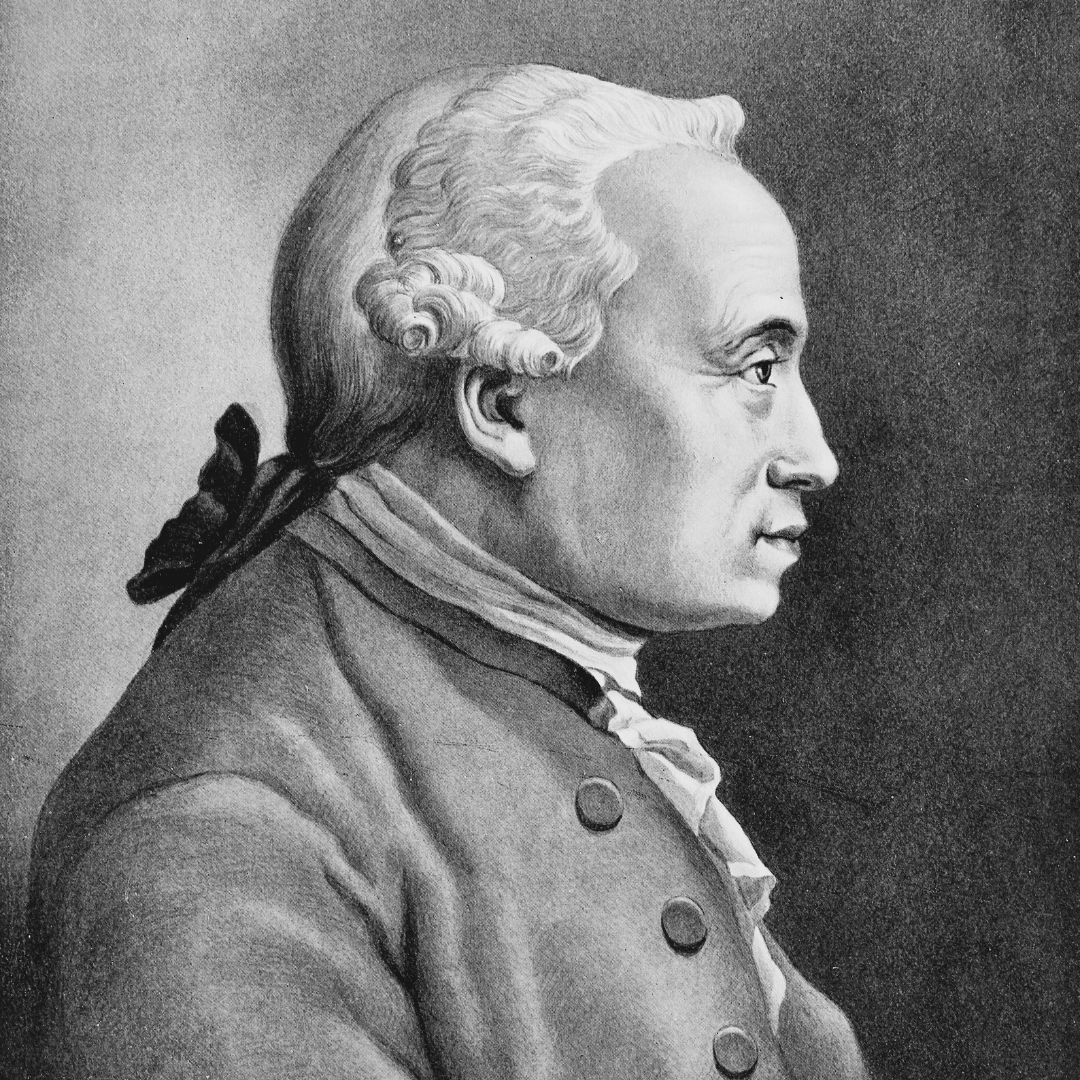In Immanuel Kant’s Religion Within the Boundaries of Mere Reason, Kant introduces his Critique of Pure Reasoning by expanding on his beliefs on religious concepts, how they are grounded in moral reason, and how these concepts ultimately lead the agent to an ethical life. When considering the philosophical doctrine of religion, in his first segment, Kant discusses his Evil Principle alongside the good and of the radical evil that could be found within human nature. It is here that I hope to accomplish a thorough explanation of Kant’s account of radical evil, to deconstruct its application to human nature, and to discuss my interpretations in regards to Kant’s investigation.
According to Kant, to identify whether or not an individual is evil, must be determined using reason proceeding from theoretical deduction rather than from experience. To be considered morally evil can be assumed by a number of consciously evil actions — or even from one single evil action — composed of an underlying evil maxim that stems from a common ground of all morally evil maxims (Religion Within the Boundaries of Mere Reason 6:20). According to Kant, the grounds for evil does not lie in any object of the agent’s which determines the power of choice through propensity, or natural impulse, but only within the power of choice that resides from the exercise of individual freedom through a maxim (6:21). He argues that if a maxim is determined through impulse, then it is not found within the practise of freedom and may even be a contradiction to freedom; it would merely be a result of natural causes. Kant expands his argument by stating that if an individual is assumed to be “naturally evil” or “naturally good”, then this statement would extend to the species as a whole as being either “naturally evil” or “naturally good”. With that being said, Kant assumes that if the rational individual is either good or bad, then that characteristic is innate in them, and that the nature of the (human) species should not be to blame or praised for such behaviours, even though human nature can inherently either be naturally evil or naturally good itself. To reiterate, to determine whether an individual is morally evil or morally good, their morality must be determined by the evil or good maxims they freely choose to act upon; however, the species itself may already be naturally evil or naturally good, and if that is the case, then the individual must not be blamed for such inherently evil or good tendencies or inclinations (6:22).
To be radically free can be demonstrated through the notion of autonomy, the ability to control one’s own actions through reason in accordance to moral law rather than desire or propensity. Kant argues that an action cannot be imputed to an agent unless they are radically free, otherwise whatever good or evil maxims conducted by the agent outside of their freedom of choice or self-governance is not to be praised or blamed. That is, an agent’s good or bad actions or intentions or not to be praised or blamed unless the agent does so purposely of their own accord. The grounds for evil, then, does not lie in the being’s natural impulses, but only by the exercise of the individual’s freedom.
Evil is then radical when an individual freely chooses to act upon maxims that are evil, when they consciously act upon maxims that are adverse to the moral law. Moral law, or good will that of which adheres to Kant’s Categorical Imperative; The Categorical imperative itself compose of three formulas: that is, an action is morally just if and only if the action is accordance with a maxim that could, at the same time, become a universal law; if it always regards the other as an end, and never as a means to an end; and if the action is pursued in a way that enables the being to think of themselves as legislating universal laws through their maxims (Grounding for the Metaphysics of Morals 4:421, 4:429. & 4:431). Kant leans more towards the proposition that human nature is inherently evil, however radical evil would only apply when the individual freely chooses evil actions — alongside their natural propensity to evil.
So, Kant argues that nature is not to blame for evil, but that the human being is alone is its author. According to Kant, Whatever is not faith is sin (in attitude) (Religion Within the Boundaries of Mere Reason 6:30), that is, whatever maxim, in which all moral goodness the individual is assessed as, determined to be contrary to law and the human being — despite all their good actions — are, nevertheless, evil. Of course, this is due to the fact that the propensity to evil is out of the individual's control. Kant states that every propensity is either natural, or moral: natural in that it pertains to a human’s power of choice as a natural being; moral in that it pertains to human’s power of choice as a moral being. However, Kant finds that propensity is not evil, that there is no propensity to moral evil, because, again, this propensity to evil is out of the individual's control. Therefore, Kant states that radical evil must originate from freedom; that the propensity to evil can only attach itself to the faculty of choice.
Kant’s determines three different grades of natural propensity to evil: first, the general weakness of the human heart or the frailty of human nature complying with their adoptive maxims; second, the propensity to adulterate moral incentives with immoral ones, or, impurity; and third, the propensity to adopt evil maxims, or, the depravity of human nature/heart.
The first grade Kant discusses on the natural propensity to evil is the weakness of the human heart, or, the frailty of human nature. He states this grade can be exhibited through a quote from an Apostle: “What I would, that I do not!” (6:29). Kant clairfies: “I incorporate the good (the law) into the maxim of my power of choice; but this good, which is an irresistible incentive objectively or ideally (in thesi), is subjectively (in hypothesis) the weaker (in comparison with inclination) when the maxim is to be followed,” (6:29). To put it simply, the first propensity to evil states the being’s weakness or frailty of individual will to the temptations that may arise in obligation to moral law.
The second grade Kant discusses on the natural propensity to evil is the propensity to adulterate moral incentives with immoral ones (even if it is with good intentions and good maxims), or, impurity. The impurity of the human heart consists in the idea that, although the maxim is good with respect to its object (the intended compliance with the moral law) and maybe powerful in practise, it is not purely moral. That is, the individual will has not maintain moral law alone as its sufficient incentive, and instead needs more incentives alongside it in order to determine the power of choice for what the duty requires. Kant expands this grade by stating: “For whenever incentives other than the law itself […] are necessary to determine the power of choice to lawful actions […] The maxim, by the goodness of which all moral worth of the person must be assessed, is therefore still contrary to law, and the human being despite all his good actions, is nevertheless evil,” (6:30-6:31). So, indvidual actions conforming to duty that are not done purely as a conformity to duty itself, but in addition to whatever benefit it may bring to the being, is still considered evil because there is an extrinsic reason as to why such duty is done in the first place, rather than acting in accordance to the law for its own sake.
Lastly, the third grade Kant discusses on the natural propensity to evil is the propensity to adopt evil maxims, or, the depravity of human nature/heart. This grade can also be considered as the corruption of the human heart, because the being’s choice of maxims are subordinate to the incentives of moral law to laws that are not moral. It can also be known as the perversity of the human heart, where such maxims reverses the ethical order of incentives of the free power of choice; and although this reversal can still be “legally” good, the mind’s actions are still corrupted “at its root”, which would still be considered evil (6:30). That is, the individual is only doing evil deeds because because it is in their nature; they succumb to their natural propensity to evil and such natural inclinations is refected on how they conduct themselves.
That being said, the three different grades of this natural propensity to evil fit into Kant’s overall picture of moral agency because they exhibit the reasons as to why human nature succumb to their evil propensities. He reasons that even from those predispositions that can be considered good, because this natural tendency is supposed to be inherent to the species universally, as a whole, it is embedded in human nature. According to Kant: “So far as the agreement of actions with the law goes, however, there is no different (or at least there ought to be none) between a human being of good morals (bence moratus) and a morally good human being (moraliter bonus), except that the actions of the former do not always have, perhaps never have, the law as their sole and supreme incentive, whereas those of the latter always do,” (6:30). That is, individuals that have their moralities based on the moral law, and those that generally act in accordance to moral law differ in that those that have their moralities based on moral law always have their maxims in accordance to such morality, however those that act in accordance law do not always have (and maybe even never have) the moral law as their only incentive of duty (insinuating that the moral law is only followed as a means to an end rather than an end itself).
When Kant states: “It follows that the human being (even the best) is evil only because he reverses the moral order of his incentives in incorporating them into his maxims. … he makes the incentive of self-love and their inclinations the condition of compliance with the moral law …” (6: 36), he assumes the notion that no matter how much an individual acts in accordance to moral law, the individual ultimately assumes the incentive of self-love. Unfortunately, Kant finds that — more often than not — moral law and self-love tend to clash as incentives for individual maxims. Kant states that human being’s sensuous nature contains too little to provide grounds for moral evil within their nature because the extent of it eliminates incentives originating from freedom. He states that if no other incentive were working against the temptations of self-love, the individual would also incorporate it into their supreme maxim as a sufficient determination of their power of choice, deluding themselves to thinking that they would be morally good. But since beings naturally incorporate both the incentives of our sensuous nature and of self love into the same maxim (if the difference between maxims depend only on the difference between incentives, whether the law ot the sense impulse provides the incentive), Kant says that the being would be morally good and evil at the same time: which would be a contradiction. Therefore, he states that the difference on whether the human being is good or evil, does not lie between the incentives that they incorporate to their maxims, but in their subordination; which of the two, the individual makes the condition of the other. According to Kant, human beings (even the best) is evil only because they reverse the moral order of their incentives to corporate them into their maxims. The being incorporates the moral into their maxims with self-love, and since they realize that the two cannot be prioritized evenly, one must be subordinate to the other as its supreme condition. The being usually makes their incentives of self-love and their inclinations the conditions of compliance with the moral law; because humans mainly prioritise self-love to the moral law, it would merely be one of the instances that exhibit humanity as evil by nature.
For Kant, it seems, following the moral law is the way of self-constitution for better or for worse: “The human being must make or have made himself into whatever he is or should become in a moral sense, good or evil. These two [characters] must be an effect of his free power of choice, for otherwise they could not be imputed to him and, consequently, he could be neither morally good nor evil… the human being is not thereby good as such, but he brings it about that he becomes either good or evil, …” (6:44). Kant’s thesis of radical evil wherby inclinations and nature are not to blame for when things go wrong, as agents are radically free because they have knowledge of the moral law honestly, puts me in a very tough position. On one hand I believe that humans have progressed enough to resist and suppress certain urges that may go against mora law as a result of their natural impulses; however on the other hand, I have also witness the inability for others (and myself) to resist temptations that may allude the individual to act in subordination to moral law in favour of self-love. To succumb to one’s natural inclinations only a harsh exhibition of the reality that, no matter how much our intellect has progressed, humanity is still animal. If we exemplify human conditions such as addiction or mental illness, the actions that do not adhere to moral law that result in these conditions, to an extent, should not be held responsible by the agent, because these condition are the faults of natural forces outside of the individual’s control. However, to a lesser degree, if we exemplify strong emotions such as anger or anxiety, to what extent is the individual supposed to be held responsible or supposed to blame their inability to control such emotions? When individuals get easily mad, for example, and exhibits their anger through violence on another or themselves, they face consequences for their actions, or are at least advised to “control” their anger before they face consequence. With that being said, to some extent I believe Kant’s thesis of radical evil whereby the inclinations and nature are not to blame for when things go wrong, as agents are radically free because they have knowledge of the moral law. I believe that, due to that fact that humans are still emotionally sentient animals, there are some impulses out of individual control that can excuse some instances of evils that go against moral law; however for the most part, because individuals are aware of some sense of the moral law, and are autonomous (having the power to consciously and freely make their own decisions and actions in accordance to their will), morally evil actions should not excuse them from consequences due to their inability to control their impulses.
With all that being said, in this article I try to thoroughly examine Kant’s account of radical evil, deconstruct its application to human nature, and discussed my interpretations in regards to Kant’s investigation. Kant innovated a new wave of reason that followed his predecessors, and although there are some contradictions to his writing, I believe such instances can easily be overcomed. Paul Formosa, for example, in his writing Kant on the Radical Evil of Human Nature (2007) also analyzes Kant’s Religion Within the Boundaries of Mere Reason and finds a bit of contradictions in Kant’s writing. Formosa found the failure to prove Kant’s Universality claim, and states that even though it can be proven that the disposition of evil can be widespread, Kant cannot maintain his statement that the human species is evil. Formosa elaborates that if humans have an evil disposition, then the human species has no uniform moral character (Formosa 239). And with that being said, Formosa believed that Kant did not maintain that radical evil is the worst part of human species. However, I thoroughly believe that through reason, Kant was able to a supply a philosophy that explained human nature and, especially in Religion Within the Boundaries of Mere Reason, their inclination to evil through his analysis of radical evil. Again, Kant’s doctrines were new, and needed time to progress enough to be fully understood, but interpretations of his texts allows readers to fill in the gaps of his theory that Kant himself was unable to do within his lifetime.
Works Cited
Formosa, Paul. “Kant On The Radical Evil Of Human Nature.” The Philosophical Forum, vol. 38, no. 3,
2007, pp. 221–245., doi:10.1111/j.1467-9191.2007.00265.x.
Kant, Immanuel. Religion Within the Boundaries of Mere Reason and Other Writings. Edited by Allen W.
Wood et al., Cambridge University Press, 2019.
Kant, Immanuel. Grounding for the Metaphysics of Morals: With on a Supposed Right to Lie Because of
Philanthropic Concerns. Translated by James W. Ellington, Hackett Pub. Co., 1993.





